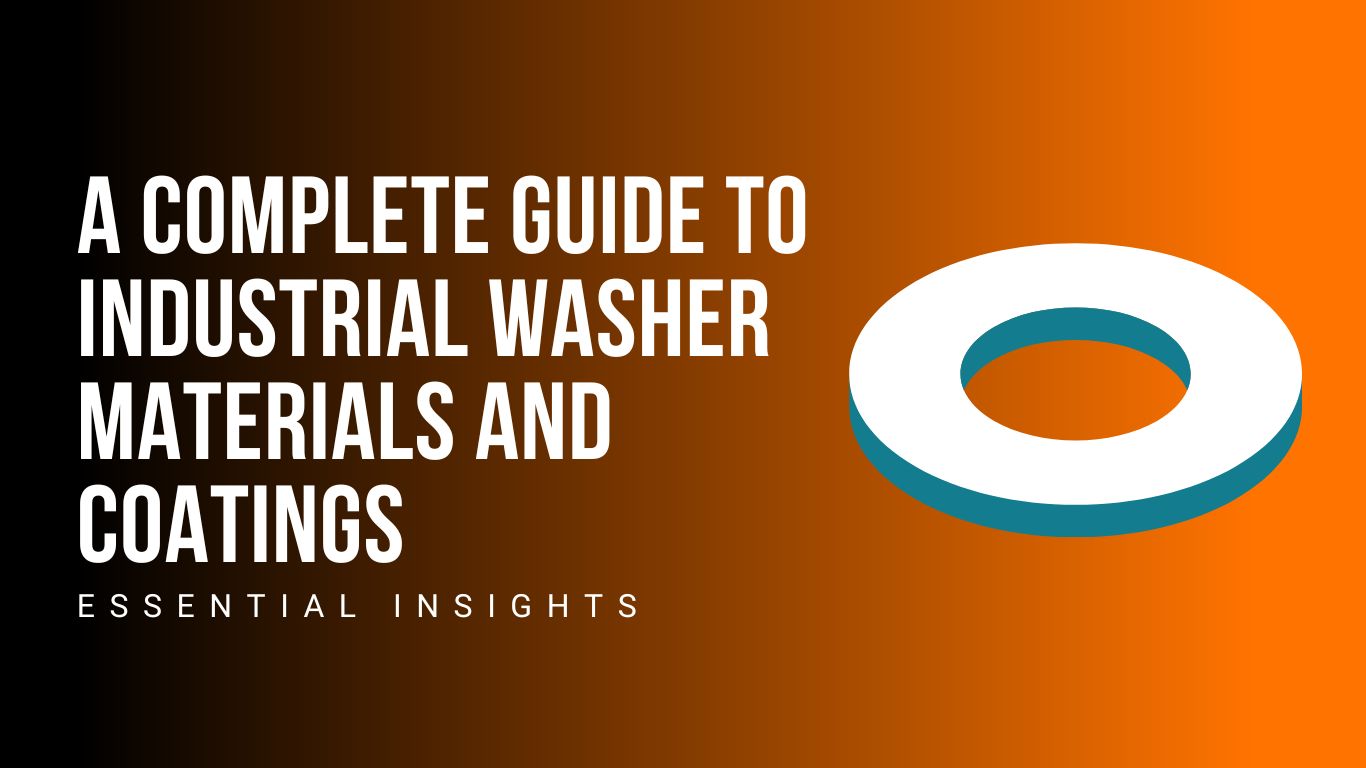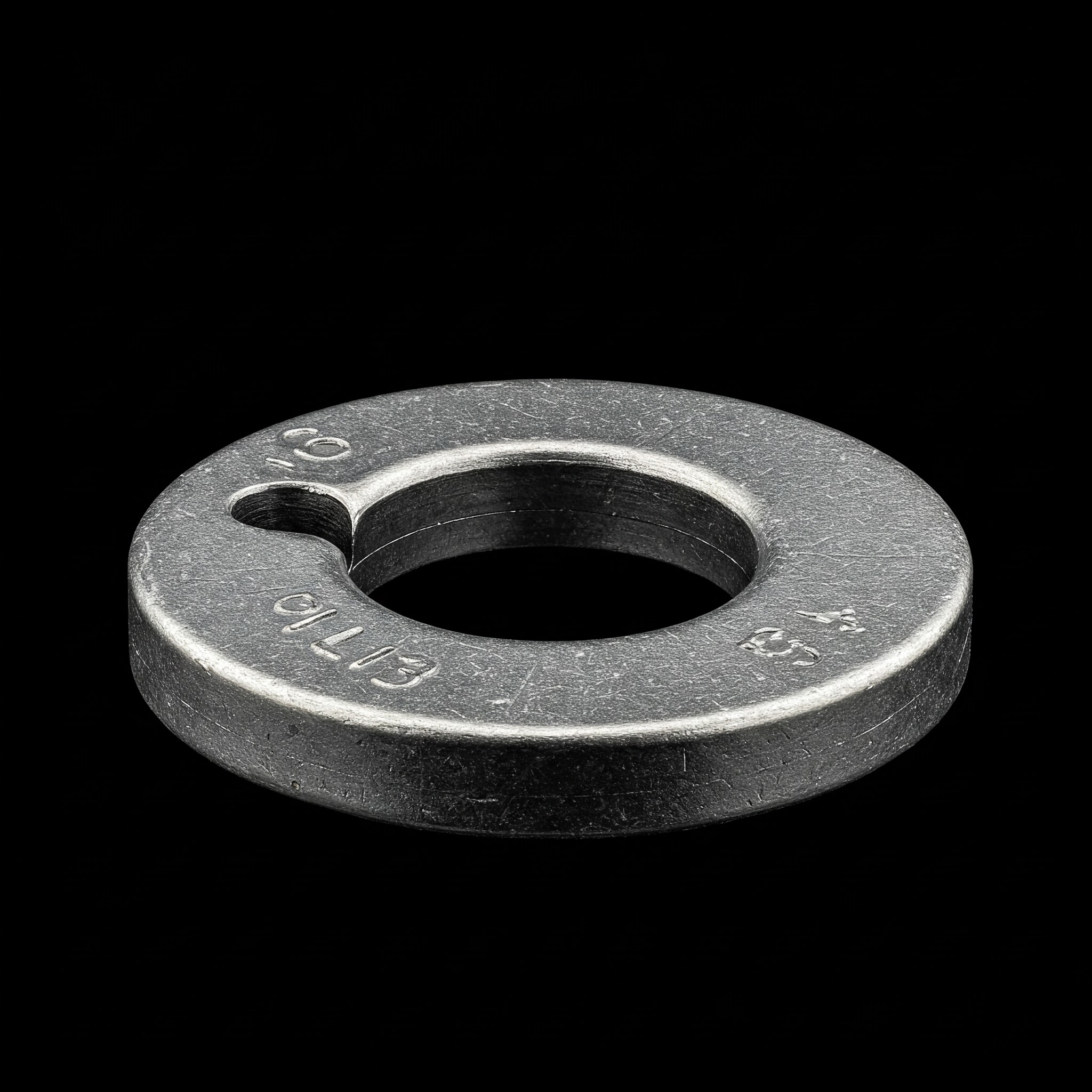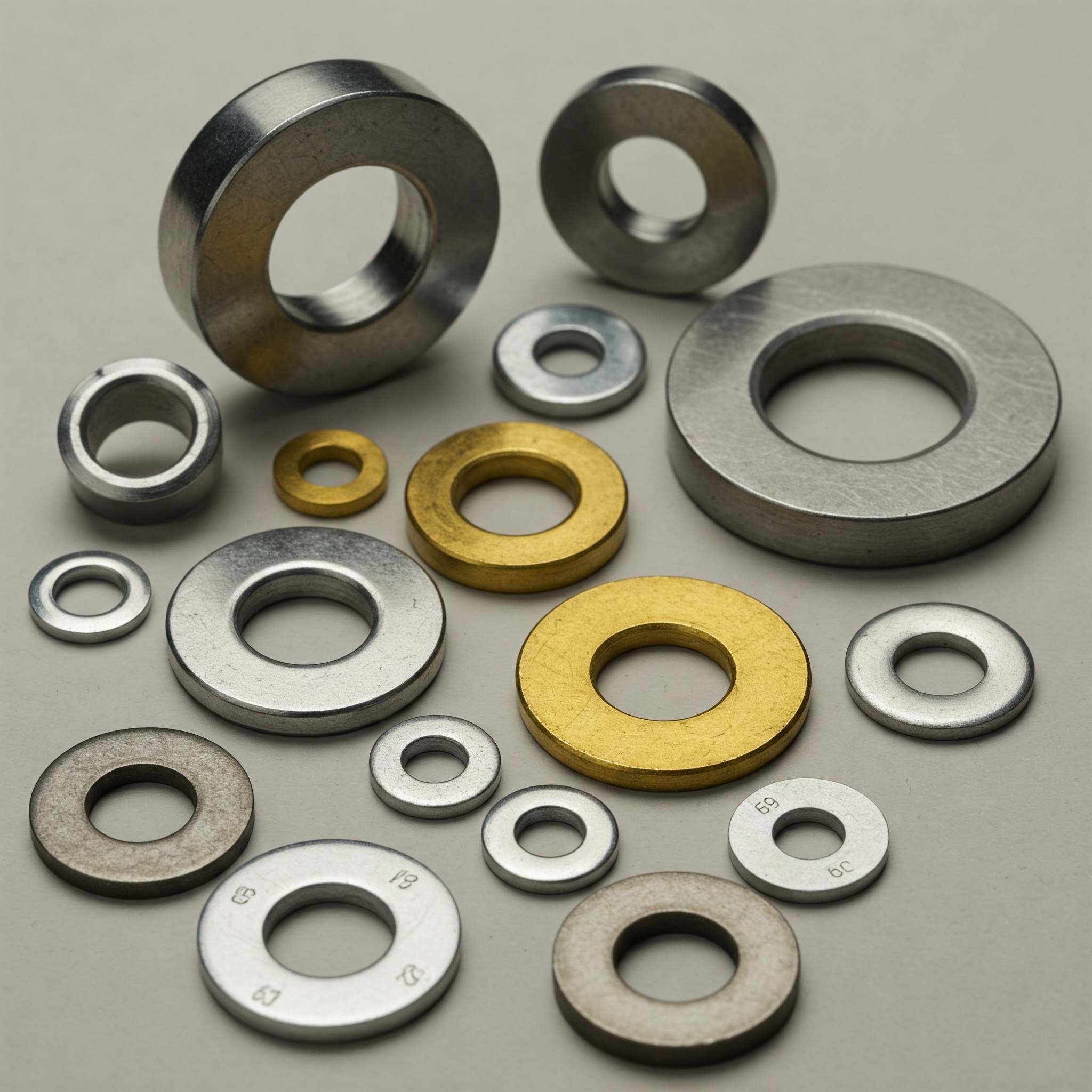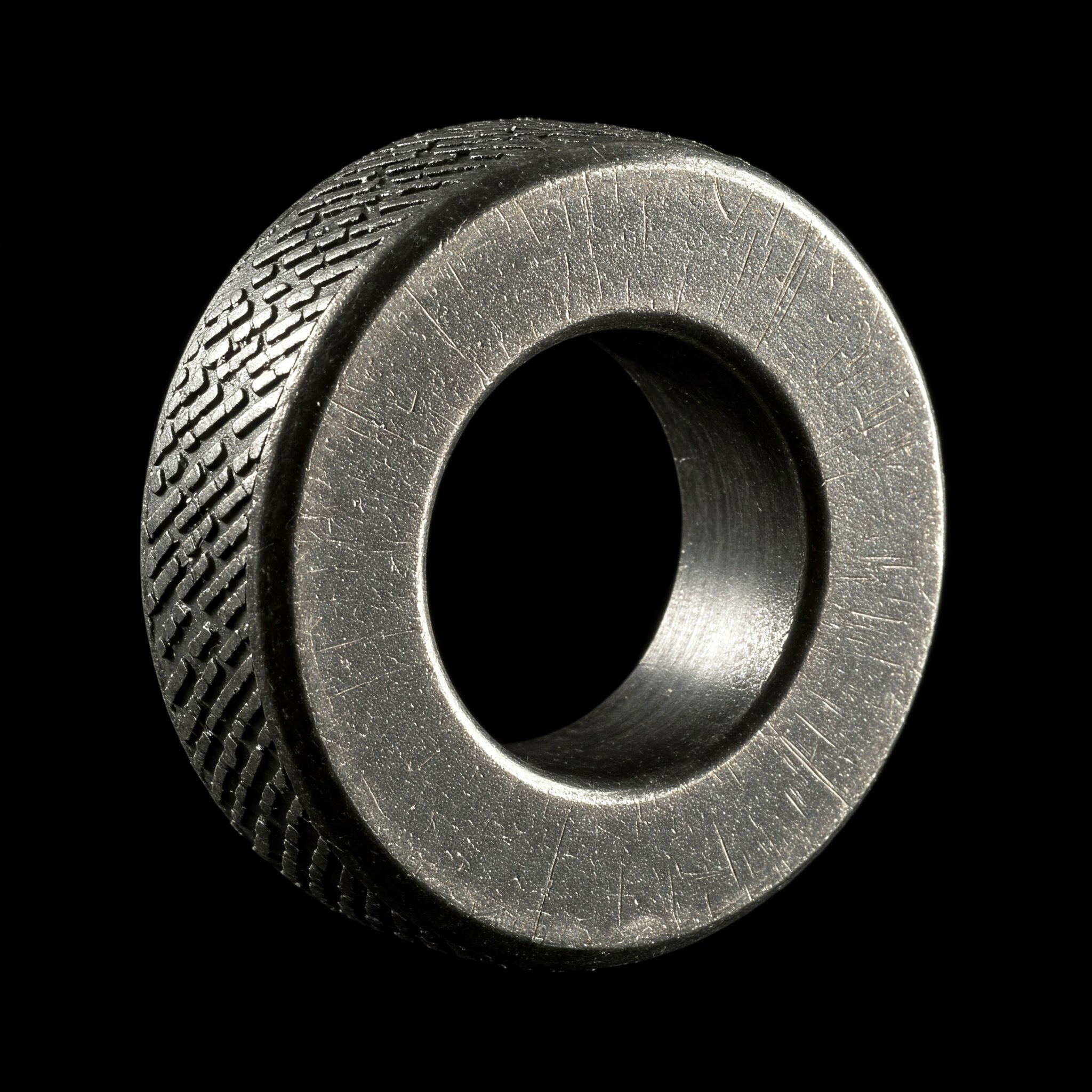A Complete Guide to Industrial Washer Materials and Coatings | Essential Insights

When you’re working on high-performance projects, whether it's in construction, automotive, or industrial machinery, choosing the right materials for your fasteners is crucial. Industrial washers are no exception. These small but mighty components help distribute loads, reduce friction, and prevent damage to surfaces. But to ensure your washers perform as expected, selecting the right material and coating is essential.
In this guide, I’ll take you through the various industrial washer materials and coatings, explaining their roles, benefits, and how to choose the best option for your project. Understanding these elements can help you ensure the longevity and performance of your fastening systems, avoiding costly repairs or failures down the line.
Table of Contents
- Why Industrial Washer Materials Matter
- Types of Industrial Washer Materials
- Industrial Washer Coatings: Why They’re Essential
- Choosing the Right Material and Coating for Your Application
- Common Applications of Industrial Washers
- Maintenance and Care of Industrial Washers
- Conclusion
Why Industrial Washer Materials Matter
Industrial washers are used in a wide range of applications, from heavy machinery to electronics. The material and coating of your washer directly impact its performance, corrosion resistance, and durability. You want a washer that not only performs well but also stands up to the demands of your specific environment. Here’s why selecting the right materials and coatings matters:
Strength and Durability: The right material ensures that the washer can handle the forces it will be exposed to, from vibrations to heavy loads.
Corrosion Resistance: Some applications expose washers to harsh environments, such as moisture or chemicals. A material and coating that resist corrosion can significantly extend the lifespan of your washers.
Cost-Effectiveness: Choosing the wrong material or coating can lead to frequent replacements and repairs. Proper selection can save you time and money.
Performance: Some washers need to withstand extreme temperatures or high levels of friction. The right material and coating provide the necessary resistance to wear and tear.

Types of Industrial Washer Materials
There are several materials commonly used for industrial washers . Each material has its own unique properties, making it suited to specific applications. Let’s take a closer look at the most common materials.
Stainless Steel
Stainless steel is one of the most popular materials for machined washers, and for good reason. It offers:
Corrosion Resistance: Stainless steel washers are naturally resistant to rust and corrosion, making them ideal for applications exposed to moisture, chemicals, and high humidity.
Strength and Durability: It is highly durable and can withstand extreme pressures, making it suitable for heavy-duty industrial applications.
Variety of Grades: There are different grades of stainless steel, such as 304 and 316, each offering varying levels of corrosion resistance and strength.
Applications: Stainless steel washers are commonly used in marine, chemical, automotive, and food processing industries.
Carbon Steel
Carbon steel is another popular material for industrial washers. It is strong, cost-effective, and versatile. However, it does require coating or treatment to prevent rust.
Strength: Carbon steel washers offer excellent tensile strength, making them a great choice for high-pressure applications.
Cost-Effective: It’s more affordable than stainless steel washers, making it suitable for projects where cost is a primary concern.
Corrosion Resistance: While carbon steel washers can be prone to rusting, coatings like zinc can protect it.
Applications: Carbon steel washers are used in construction, automotive, and general industrial applications where rust is not a major concern or can be managed.
Brass and Copper
Brass and copper washers offer unique properties that make them suitable for certain applications.
Corrosion Resistance: Both brass and copper naturally resist corrosion, although copper is particularly good in marine environments.
Non-Magnetic: These materials are non-magnetic, which makes them ideal for electrical and electronic applications.
Ductility: Brass washers are ductile, meaning they can deform under pressure without cracking, making them ideal for vibration-resistant applications.
Applications: Brass washers and copper washers are commonly used in electrical, plumbing, and electronics industries.
Plastic and Rubber
While plastic washers and rubber washers are not as common as metal washers, they offer specific advantages:
Corrosion-Free: These materials are resistant to rust and corrosion, especially in environments where metal washers would fail.
Electrical Insulation: Rubber washers, in particular, can provide electrical insulation, which is important in certain electronic applications.
Shock Absorption: Rubber washers can absorb shocks and vibrations, making them ideal for noise reduction and sensitive equipment.
Applications: Plastic washers are used in electronics, plumbing, and applications that require non-corrosive and non-conductive properties.
Industrial Washer Coatings: Why They’re Essential
Choosing the right coating for your industrial washers can significantly improve their performance, especially when dealing with extreme conditions. Coatings help increase corrosion resistance, reduce friction, and extend the life of the washers. Here are some of the most common coatings used for machined washers.
Zinc Coating
Zinc coating is one of the most common coatings for industrial washers. It provides:
Corrosion Resistance: Zinc acts as a sacrificial anode, protecting the underlying material from rust and corrosion.
Cost-Effective: It’s an affordable way to extend the lifespan of washers in less demanding environments.
Versatility: Zinc-coated washers are used in many applications, from automotive to construction.
Phosphate Coating
Phosphate coating offers additional protection against rust and wear.
Enhanced Lubrication: The coating reduces friction, which can help in applications where washers experience frequent movement.
Corrosion Resistance: Phosphate coatings provide strong protection against corrosion, especially in humid or acidic environments.
Durability: This coating increases the longevity of industrial washers in high-stress environments.
Chromium Coating
Chromium coating offers a hard, durable finish that’s perfect for high-wear applications.
Wear Resistance: Chromium washers provide excellent wear resistance, making them ideal for washers used in machinery.
Corrosion Resistance: This coating also offers great resistance to corrosion, making it suitable for aggressive environments.
Other Coatings
There are other specialized coatings, such as black oxide, Teflon, and nickel plating, each offering unique properties like added friction resistance, chemical protection, or even a more aesthetically pleasing finish.

Choosing the Right Material and Coating for Your Application
Choosing the right machined washer material and coating requires understanding the specific needs of your project. Here are some factors to consider:
Environment: Is the washer exposed to moisture, chemicals, or extreme temperatures? Choose materials and coatings that can withstand these conditions.
Strength Requirements: Are the washers used in high-pressure or high-vibration applications? Consider stronger materials like stainless steel washers or carbon steel washers.
Cost Considerations: If cost is a significant concern, you might opt for more affordable materials like carbon steel washers with a corrosion-resistant coating.
Longevity: If your washers need to last for years without replacement, consider investing in higher-quality materials and coatings that offer excellent durability and corrosion resistance.
Common Applications of Industrial Washers
Industrial washers are used in a wide variety of industries, each with its own specific needs. Here are some common applications:
Automotive: Washers in automotive engines, brakes, and suspension systems require materials that resist heat, vibrations, and corrosion.
Construction: Industrial washers in construction must be durable enough to withstand extreme pressures and environmental conditions.
Electronics: In electronics, washers are needed for securing components without causing short circuits or other issues.
Marine: Stainless steel washers are essential in marine environments due to their resistance to corrosion and rust.
Maintenance and Care of Industrial Washers
Proper maintenance can extend the lifespan of your industrial washers. Here are a few tips:
Regular Inspection: Check washers for signs of wear, rust, or corrosion and replace them when necessary.
Lubrication: For washers that experience high friction, use appropriate lubrication to reduce wear.
Cleaning: Clean washers regularly to prevent debris buildup and ensure they function properly.

Maintenance Tips for Machined Washers
To ensure your machined washers continue to perform effectively, regular maintenance is key:
Inspect Regularly: Check washers for signs of wear, corrosion, or deformation. Replace any washers that appear damaged or worn.
Clean Thoroughly: Keep washers clean to avoid debris buildup, which could compromise their performance.
Lubrication: In some applications, lubricating washers can reduce friction and prevent premature wear.
Check Tightness: Periodically check the tightness of fasteners to ensure the washer continues to provide proper load distribution.
Conclusion
Choosing the right industrial washer materials and coatings is essential for ensuring the success of your project. By understanding the properties of different materials, coatings, and their applications, you can make informed decisions that improve the performance and longevity of your fastening systems. Whether you're working on automotive, construction, or industrial machinery projects, proper selection and care of machined washers, wedge lock washers, square washers, and spring lock washers will help ensure optimal results and avoid costly repairs down the line.
About Sachin Shim
Our range of shim washers includes machined washers , industrial washers , ogee washers , tab washers , conical washers , sealing washers , and more. Designed for various applications, they ensure precise alignment, secure fastening, and durability in industries like aerospace, automotive, construction, and manufacturing. Whether you need industrial washers for heavy machinery, sealing washers for fluid systems, or ogee, tab, and conical washers for specialized uses, our selection guarantees optimal performance.
Author
Meet Sachin, our expert author in industrial materials with a deep understanding of stainless steel shims, bolts, and shim washers. With years of experience, Sachin brings valuable insights and expertise to this guide, making her a trusted source for all things related to washers. Join us as we delve into the art of crafting washers with Sachin leading the way.
List Other similar blogs







